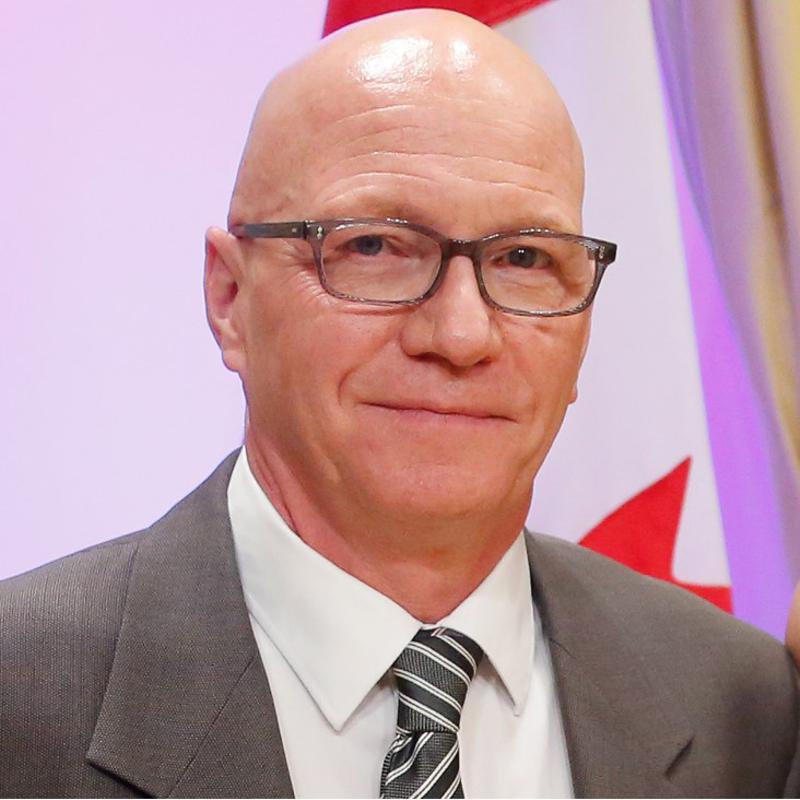[Editor’s note: This story was updated on Feb. 2 at 9:56 a.m.]
The president of Athabasca University, Canada’s top distance learning institution, appears to have been fired Wednesday without a vote by the entire board of governors, The Tyee has learned.
Three board members, speaking on condition of anonymity, said they weren’t notified of a vote, which was conducted by email, and only learned about the firing of president Peter Scott - three weeks after the death of his wife - after it had been done. Two said they learned about it when a news release was issued Wednesday afternoon.
“If I missed the memo or something, maybe, but I'm not aware that there was a meeting this morning,” one board member said, “and as far as I know, there was no vote this morning.”
A second board member said “the vote was supposed to be done by email but I never got any email” while a third board member said board chair Byron Nelson had the phone contact information for every board member but they were not contacted.
The board’s bylaws allow votes to be taken by email but all three board members assumed there would have been an in-person meeting to discuss the firing of the president and the hiring of a new president.
Reached by phone Wednesday evening, Nelson, a Calgary lawyer, insisted the firing of Scott was a “proper vote based on our bylaws.” He said he contacted every board member but he refused to say if everyone had voted.
“I mean, some people can choose to either support, oppose or abstain, or people can choose not to vote in the course of a meeting in the approval process, but everybody participated,” he said.
Challenged again with the fact that members had told The Tyee they were unaware of a meeting and had not voted, Nelson responded: “I am saying that we had a vote as per our bylaws that was in line with our governance rules and [it was] binding.”
Athabasca University's board of governors lists 19 members including the president.
The firing of Scott brings to an end a campaign by Alberta Advanced Education Minister Demetrios Nicolaides to force Scott and Athabasca University to move more staff to the town of Athabasca to improve economic development in the area.
The Tyee has confirmed Scott first found out that Nicolaides’ handpicked board of governors was searching for a replacement, and that he had been fired, when he was contacted by Nelson on Wednesday.
The firing comes about three weeks after the passing of Scott’s wife, Fiona Brooks, an academic executive who worked in New Zealand. She died in Australia after a short bout with cancer. Scott is in Australia on leave and declined comment.
“He was in Australia not long ago for his wife’s funeral so this is, to say the least, heartless and soulless,” said Sir John Daniel, a former university board member, when told about the firing Wednesday.
“Peter was very popular and a lot of people had invested great hopes in him. This is a massive loss for the university.”
In a statement issued to university staff moments after Scott had been fired, Nelson said Scott would be replaced by Dr. Alex Clark, the university’s dean of Health Sciences.
“This is an important decision and comes at an important time of growth and needed stability,” the statement said.
“Dr. Clark was a leading candidate in our recent and thorough search for a new president. Using an executive placement firm, we followed an extensive and exhaustive search that involved multiple steps and included numerous international candidates.
“Dr. Clark has impressed the board with his vision of leadership, his strong credentials, and his commitment to the community.”
Neither the faculty association nor the students’ union was consulted about Clark’s hiring.
That Nelson noted Clark’s commitment to the community is telling.
The genesis of the dispute was Nicolaides’ insistence that the university abandon its near-virtual strategy, which allows senior administrators, including the president, professors and other staff to work remotely from across Canada.
Beginning in March last year, Nicolaides demanded Scott and the board instead produce a plan to force the relocation of hundreds of employees, including Scott, to the town, 150 kilometres north of Edmonton, to bolster the region’s economic development.
Nicolaides however, evidently had not consulted anyone before issuing the demand because, as experts pointed out, it would be logistically impossible for the town to accommodate an influx of that magnitude. The town’s mayor said they had not asked for that many people to be moved there, and didn’t want them.
Still when the board balked at the forced-relocation directive, Nicolaides fired former board chair Nancy Laird and replaced nearly the entire board by December.
Nicolaides issued an ultimatum that 30 per cent of the university’s staff, and nearly half its senior executives, must move to the town within three years or he would slash their funding. That was subsequently whittled to four key senior executives and 30 new hires.
In response to that directive, the university’s vice-president of finance and its chief human relations officers both chose to leave the university. The university currently has a hiring freeze so it’s not known how the directive to have 30 more people live in the community will be fulfilled.
Nicolaides did not respond to a request for comment.
Experts in post-secondary governance and distance learning called Nicolaides’ ultimatum an unprecedented political overreach that may cause the university’s collapse. Several senior university executives had said they would quit rather than move to the town.
The Tyee contacted two senior executives Wednesday. Both said they wouldn’t move, even if it was required to keep their jobs.
“I am not currently in a position to move,” said business dean Lisa Watson. “In another year or so I would see where I was at and consider it then but for my family situation I will not be moving in the near future.”
“I am disappointed in the firing of Peter Scott and I am horrified by the timing,” Watson said.
University of Toronto professor Glen Jones called Nicolaides’ ultimatum “the most egregious political interference in a public university in Canada in more than 100 years,” and he said it could threaten the university’s survival.
Jones said Athabasca University is commonly regarded as a world class Open University.
He said the university’s vision to go near virtual was “highly innovative” and was warranted at a time when the entire world has just experimented with working from home.
On Wednesday, Jones said Scott’s firing would have been the board’s decision.
“I’m not saying it’s not without influence from the minister,” Jones said. “I obviously have no sense of that but it must clearly be related to the controversies that took place several months ago now and the assumption obviously is the board is not satisfied with the direction that the university is taking and one would think that community pressure played a role in that.”
A group of townspeople, including the town’s mayor, had lobbied Nicolaides and former premier Jason Kenney to move jobs back into the town and they hired well-connected lobbyist Hal Danchilla, who had worked on Kenney’s election campaign, to press their case.
Sir John Daniel, a world-renowned expert in distance learning, also said the directive would cause “the collapse of the university in the short-to -medium term because of the number of people (senior executives) who would leave.”
“I think the university is in for a period of fairly chaotic desertion of staff depending on exactly what the government has imposed, which is still a bit unclear,” Daniel said Wednesday.
In firing Scott, Daniel said, the university has lost “someone who had a real vision for what the whole distance-learning technology development meant for higher education.”
Daniel said Scott understood, as did the previous board, that the university’s survival depended on the need to remake the university with a focus on attracting national, and international students.
“Because one of the keys to success in these distance operations is scale because it requires a fairly large upfront investment to make it run well and Peter understood all that.”
In a video posted on Youtube Wednesday, new Athabasca University president Alex Clark said he and his family moved to Alberta 20 years ago from Glasgow but he said his move to Athabasca University in 2021 had been “life changing.”
“As president with an active residence in the town of Athabasca I commit to growing AU’s contributions near and far and reinforce the foundation that makes this possible.”
If you have information for this story, or for another story, please contact Charles Rusnell in confidence via email. ![]()
Read more: Politics

















Tyee Commenting Guidelines
Comments that violate guidelines risk being deleted, and violations may result in a temporary or permanent user ban. Maintain the spirit of good conversation to stay in the discussion.
*Please note The Tyee is not a forum for spreading misinformation about COVID-19, denying its existence or minimizing its risk to public health.
Do:
Do not: